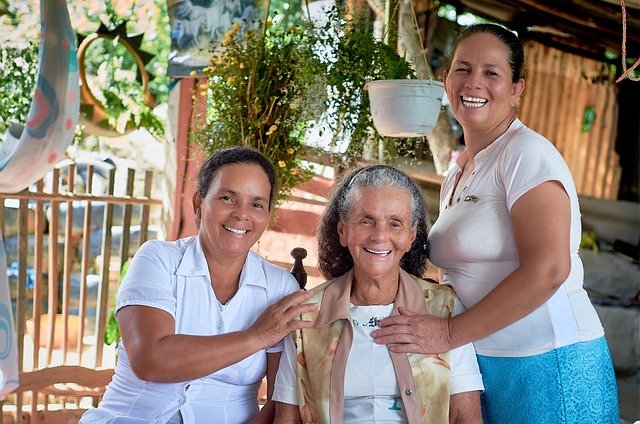What if menopause was optional? Could science offer women a new kind of freedom — one where reproductive aging is no longer a certainty?
For centuries, menopause has been accepted as an unchangeable part of life. But thanks to groundbreaking innovations in medical science, the conversation is shifting. We’re entering an era where delaying — or even eliminating — menopause is not just a fantasy, but a possibility. 🧬⚗️
In this guide, we explore what it means to reimagine menopause — the science, the potential, and the implications for women’s health, identity, and freedom.
🔍 What Is Menopause?
Menopause is defined as the time when a woman stops having menstrual periods for 12 consecutive months due to a natural decline in reproductive hormones, particularly estrogen and progesterone.
This typically occurs between the ages of 45 and 55, but symptoms can begin during perimenopause, the transitional stage that can start in a woman’s late 30s or early 40s.
👎 Common Symptoms Include:
- Hot flashes and night sweats 🔥🌙
- Irregular periods and eventual cessation 🩸
- Vaginal dryness and discomfort 😣
- Sleep disturbances and fatigue 😴
- Anxiety, depression, mood swings 😞
- Memory issues and brain fog 🧠💤
- Bone thinning (osteoporosis) 🦴
- Decreased libido and intimacy challenges 💔
🧠 Emotional & Social Impact:
- Loss of femininity or youthfulness
- Challenges in relationships or career focus
- Mental health fluctuations due to hormonal changes
- Anxiety about aging, identity, and health
While some women embrace menopause as a liberating life stage, for many others, it is fraught with physical and emotional struggles. That’s why researchers are asking: Can we do menopause differently?
🔬 The Science of Delaying or Eliminating Menopause
🚨 Why Delay Menopause?
Delaying menopause could:
- Protect against osteoporosis and cardiovascular disease
- Maintain mental clarity and sexual health
- Extend fertility and hormonal youthfulness
- Improve overall longevity and quality of life
Let’s explore some cutting-edge strategies being developed.
1️⃣ Ovarian Rejuvenation Therapies
One of the most talked-about options is ovarian rejuvenation using Platelet-Rich Plasma (PRP) or stem cell therapy.
🧪 How it works:
- PRP is created from the woman’s own blood and injected into her ovaries
- It stimulates dormant follicles to restart hormone production and possibly ovulation
📊 Research Status:
Early studies in women with premature ovarian failure show restored periods and even pregnancies. More clinical trials are underway.
2️⃣ Ovarian Tissue Freezing and Transplantation
Originally developed for cancer survivors, this technique involves:
- Freezing a piece of healthy ovarian tissue at a young age ❄️
- Reimplanting it later to restore hormone function and potentially fertility
🕐 Effectiveness:
- Women can delay menopause for 5–10 years
- Potential for repeated use if multiple samples are preserved
🌍 Accessibility Issues: Currently offered at a limited number of fertility centers globally
3️⃣ Bioidentical Hormone Replacement Therapy (BHRT)
BHRT involves using plant-based or synthetic hormones that are chemically identical to those the body produces naturally.
💊 Why BHRT?
- Personalized dosages based on hormone testing
- Can reduce or eliminate menopause symptoms
- New delivery methods (patches, creams, pellets) make it safer and more manageable
📉 Risks?
When monitored properly, BHRT is safe for many women. Long-term studies are still ongoing to evaluate risks of cancer, stroke, or heart disease.
4️⃣ Genetic and Longevity Research
Scientists at Harvard, Altos Labs, and other biotech startups are exploring epigenetic reprogramming — the process of turning back the biological clock in human cells. 🔬🧬
🌟 The Big Idea:
If we can reverse cellular aging, we might delay menopause indefinitely by rejuvenating the ovaries and reproductive cells.
🧠 Still Experimental: This technology is 5–10 years away from practical use but is highly promising in lab settings.
💡 The Pros and Cons of Delaying Menopause
✅ Potential Benefits
- Extended reproductive choices
- Improved bone density and heart health
- Better skin, sleep, and cognitive function
- Enhanced mental health and sexual well-being
- Greater control over one’s aging process
⚠️ Concerns & Ethical Questions
- 💰 Cost: Will it be only available to the wealthy?
- 🧪 Unknown long-term effects of new therapies
- 👶 Extended fertility raises questions about parenting age
- 👵 Will it change how society views aging and womanhood?
Reimagining menopause is not just about biology — it’s also about identity, ethics, and equity.
👩⚕️ What Can You Do Now?
Even if these innovations aren’t yet mainstream, there are steps every woman can take to support hormonal health:
🥗 1. Eat Hormone-Friendly Foods
- Focus on phytoestrogens (like flaxseed, soy, sesame)
- Include calcium-rich foods for bone health 🥦🧀
- Avoid excess sugar, alcohol, and caffeine ☕🍷
🧘♀️ 2. Stay Active and Stress-Free
- Regular exercise helps regulate hormones 🏃♀️
- Meditation and sleep hygiene reduce cortisol and protect your mood 😌
🧪 3. Get Tested Early
- Start hormone testing in your late 30s or early 40s
- Track perimenopause symptoms and work with a hormone specialist or integrative gynecologist
💬 4. Join the Conversation
Talk about menopause openly — with friends, partners, and doctors. Break the taboo and share knowledge.
💬 Voices from Women: What Do They Think?
“I watched my mom suffer through menopause. I want a different path.”
— 39-year-old career woman freezing her ovarian tissue
“I feel like my body stopped being mine when I turned 50. Now, I’m exploring BHRT, and I feel myself again.”
— 52-year-old using hormone therapy
“I’ve chosen not to delay menopause. For me, it was a rite of passage. But I’m glad women now have options.”
— 56-year-old embracing natural aging
This isn’t a one-size-fits-all journey. It’s about choice.
🌍 The Future of Women’s Health Is Here
The goal of reimagining menopause is not to erase it — it’s to empower women with options, resources, and the ability to take control of their bodies on their terms.
🔮 Whether you embrace menopause or explore delaying it, the future is filled with hope, science, and choice.
The next generation of women may no longer ask, “When will menopause come?” — but instead, “Do I want it at all?”
📚 References
- Harvard Health Publishing (2024). Emerging therapies in menopause and aging.
- Mayo Clinic (2023). Ovarian rejuvenation and hormone health: What we know so far.
- Nature (2022). Cellular reprogramming and reproductive longevity.
- National Institutes of Health (2023). Menopause research roadmap: Delaying reproductive decline.






